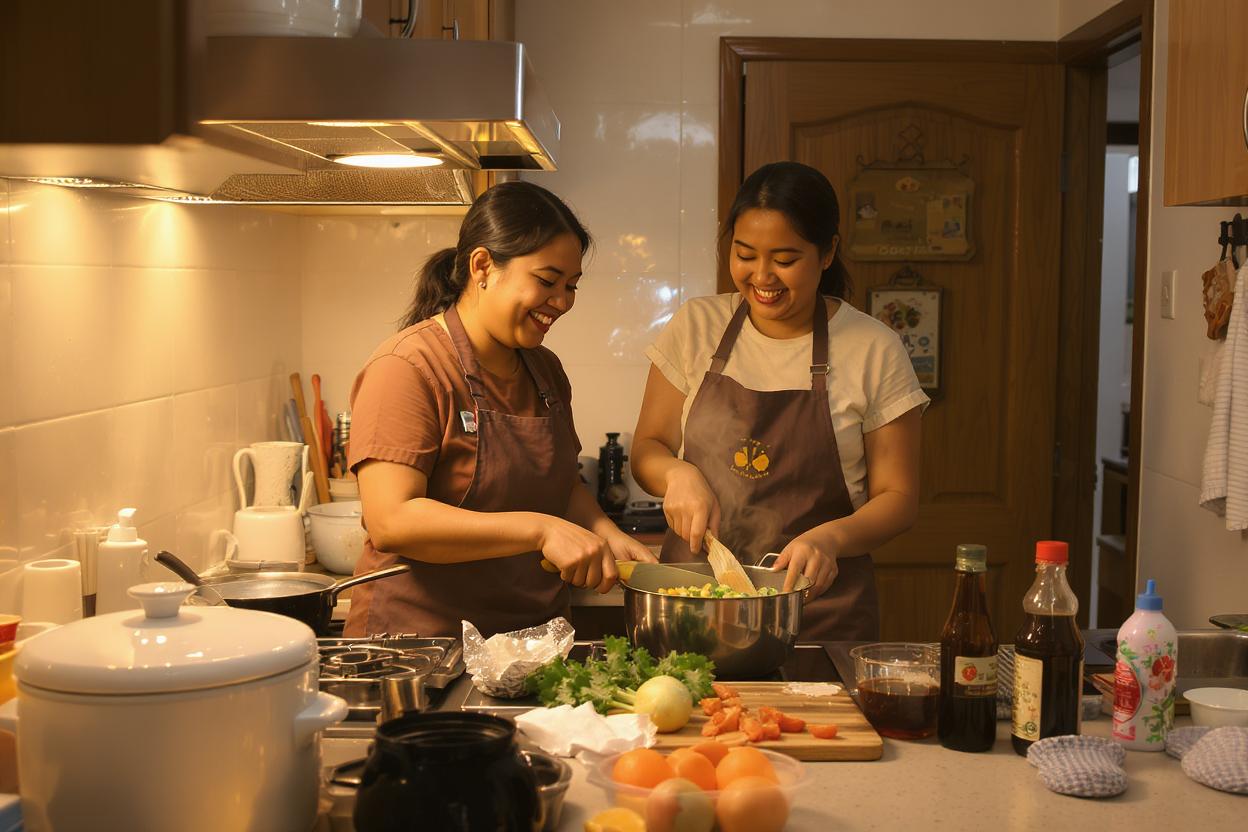When you move to Taiwan, staying in a dorm is usually the main choice. People often talk about things like dormitory rules for OFWs, housing that your boss gives you, and what dorm life is like.
But what if you’re ready for something different? Maybe you want more flexibility, better living conditions, or just a bit more privacy than a bunk bed in a crowded room.
If you’ve got the budget and freedom to choose, shared housing could be a smart in-between. It’s cheaper than living alone but offers more comfort than standard dorms. Still, it’s not for everyone. Let’s walk through the pros and cons so you can decide if it fits your Taiwan life.

Pros of Shared Housing for OFWs
Lower Monthly Rent
Sharing a flat means splitting rent and utility costs—sometimes cutting your monthly expenses by 30% to 50%. That extra NT$6,000–10,000 could go to your savings or remittances.
Built-in Social Network
Living with fellow OFWs or even locals means you’re less alone. You get to swap stories, practice Mandarin, and adapt to Taiwanese culture faster with real-time help.
Shared Responsibilities
Cooking, cleaning, grocery runs—it all becomes easier when it’s shared. Divide tasks fairly and your weekly routine lightens up a lot.
Flexible Lease Terms
Unlike employer housing which ties you to your job, many shared apartments offer 1–3 month contracts, which is perfect if you’re in between jobs or still exploring better areas to live.
Safety in Numbers
Roommates can help watch over your stuff, lend a hand in emergencies, and keep you company when the homesickness hits.
Cons of Shared Housing for OFWs
Limited Privacy
If you value your quiet time, be warned: thin walls, shared bathrooms, and bunk-style setups mean less “me time.”
Potential for Conflicts
Without clear house rules, things like noise, guests, and chores can lead to tension. Even small differences in lifestyle can become daily stressors.
Shared Utilities Can Be Tricky
Who pays what for water, internet, or the electricity bill? If not discussed early, you could end up paying more than your share—or arguing about bandwidth.
Cultural and Language Barriers
Living with locals who don’t speak much English (or vice versa) may lead to miscommunication. It helps to learn basic Mandarin and be open to cultural differences.
Variable Housing Quality
Photos don’t always show the full story. Some listings look great online but may lack good ventilation, working appliances, or proper safety features.
Shared Housing at a Glance: Pros & Cons
| Pros | Cons |
| Lower rent and utility costs | Limited privacy and personal space |
| Instant social circle | Potential roommate conflicts |
| Shared chores and errands | Uneven bill sharing |
| Short-term, flexible leases | Cultural and language barriers |
| Added safety and emotional support | Variable housing quality |
Tips for a Smooth Shared Housing Experience
- Agree on House Rules Early
Set expectations around chores, bills, quiet hours, and guests. A simple agreement can prevent major problems later. - Do a Tour (In Person or via Video)
Check the place thoroughly: locks, windows, bathrooms, ventilation, and kitchen cleanliness. Don’t rely on photos alone. - Vet Your Roommates
If you’re not moving in with friends, join reputable Facebook groups or OFW forums to find reliable co-renters. Ask for references if needed. - Set Up a Group Chat
A shared LINE or WhatsApp group makes it easier to coordinate groceries, pay rent, or just update each other. - Respect Cultural Differences
Small gestures like removing shoes indoors or learning basic greetings go a long way. Mutual respect makes shared spaces more livable. - Know Your Rights
Learn about Taiwan’s rental laws, especially around deposits, advance notices, and subleasing. It’ll protect you from unfair arrangements.
Beyond Dorms: Shared Housing and Other Alternatives
We’ve talked about employer housing and OFW dorms—but if you’re seeking something with a bit more independence, shared housing isn’t your only option. Here are more ideas:
- Co-living Spaces: Think modern dorms with privacy pods, coworking spaces, and curated events. A good option if you want comfort plus community.
- Studio Apartments: Ideal if you’re ready to live alone. More expensive but gives you full control of your environment.
- Homestays: A structured setting with a local family, often including meals and language immersion.
To help you plan your space better:
- Use free online room planners or sketch your dream setup to make sure you’ll feel comfortable.
- Check if there are Filipino community centers or churches nearby, so you can build support beyond your roommates.
Video: Can OFWs in Taiwan Rent Apartments Outside Their Dorms?
Renting an apartment outside dormitories sounds simple—but for many OFWs in Taiwan, it’s not that straightforward.
The video explains how company contracts often discourage or prevent factory workers from renting on their own, even if it’s legally allowed.
Despite the rules, some workers take the chance just to enjoy peace, privacy, and better sleep—especially those struggling with noisy, crowded dorm life.
Still, one misstep with a broker or employer can lead to warnings or, worse, being sent home.
It’s a trade-off that many weigh quietly: a few hours of rest, or the safety of staying in line.
Final Thoughts
Shared housing in Taiwan is a step up from basic dorms—but it comes with its own set of challenges. For OFWs who want more flexibility and community, it can be a great middle ground. Just be sure to vet the space, clarify expectations with roommates, and prepare emotionally for the give-and-take of communal living.
You’re not just looking for a place to sleep—you’re creating a home abroad. Make it a smart, comfortable one.
